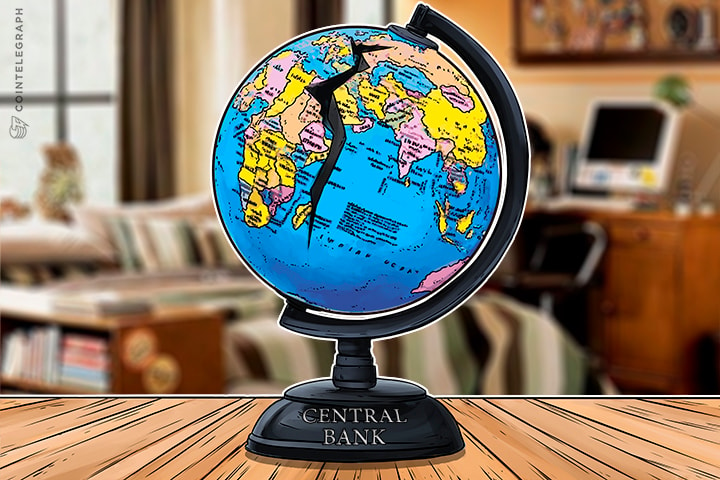So long have the central banks across the globe held a massive monopoly over the most important resource, money. They have built their rules and shaped their fortunes, but now, there is an upstart digital currency challenging all this, and no one is really sure of how to handle it.
The emergence of Bitcoin as a real player, a real threat, has caused many to take sides. From the Wall Street Banks who are either in Jamie Dimon’s corner or the other more accepting side, Bitcoin divides thoughts.
Central banks are big players when it comes to shaping the global economy, and they have had to make their own minds up when it comes to Bitcoin. But it is not only Bitcoin that they are considering, there is also talk of “Why not us?” as many of them look to create their own version of Bitcoin.
US: “But how will we monitor you?”
The over-eyeing US has a problem when it comes to Bitcoin because the digital currency offers up much more anonymity when it comes to transactions. The central banks are thus a little concerned with the privacy issues these digital currencies bring. Overall, the US central bank has not been overly enthused about the whole thing as they have already had problems with tax avoidance.
Jerome Powell, a board member for the Federal Reserve said:
“There are meaningful challenges to a central bank cryptocurrency, but it is the privacy issues that would be the problem, perhaps private-sector alternatives are the answer.”
Europe: “The land of Tulips”
In general, Europe, having lived through Tulip Mania in the Netherlands, are of the opinion that the Bitcoin Craze is just one big Tulip-shaped bubble, issuing a warning to that effect. Vice-President, Vitor Constancio, of the European Central Bank has said: “Bitcoin is a sort of tulip,” Constancio said at an ECB conference. “It’s an instrument of speculation ... but certainly not a currency and we don’t see it as a threat to central bank policy.”
As such, the European Central Bank approach is that Bitcoin is no threat to their monopoly with the Euro - quite a one-eyed view to have.
China: “We can make this work for us”
China is one of the few major nations to take a hard stance - either way - when it comes to digital currencies. They have not been that keen on the big one, Bitcoin, and have rather decided to try and get that out of their system. Rather, China’s central bank is building a situation where they can try and launch their own digital currency to try and keep money within their boundaries.
“The development of digital economy needs central bank-issued electronic currency more than ever,” Yao Qian, who leads the research at the People’s Bank of China (PBOC), said. “It’s crucial to speed up the research and issuance.”
Japan: “Let’s see how this plays out”
Japan has never been hostile to Bitcoin at all, but there has never really welcomed it with open arms. They have been in waiting for some time now, letting the ecosystem grow and develop into something that they can actually monitor. Now that Bitcoin and other cryptocurrencies are getting legs, and there is more deeper understanding. Japan has even gone as far as to suggest some big changes, but they have not dived in yet - such as the J-coin.
"This will be pegged with Japanese Yen, and hopefully used to make payments and transfers through a mobile phone app," a spokesperson from Mizuho Financial Group, one of the institutions spearheading the move, said.
India: “No thanks”
India’s biggest fear is that digital currencies are full of potential for money laundering and terrorist funding, this has caused the central banking authority in India to retract away from any dealings with Bitcoin, or in fact, even thinking about creating their own. However, when it comes to the utilizing the coins, the country is not adverse to its citizens using it.
According to the Central Bank’s Executive Director Sudarshan Sen:
"As regards non-fiat cryptocurrencies, I think we are not comfortable. Bitcoins for example. That's a private cryptocurrency. Right now, we have a group of people who are looking at fiat cryptocurrencies. Something that is an alternative to the Indian rupee, so to speak. We are looking at that closely.”
UK: Viva la Revolution
While the UK has never really written the headlines for cryptocurrencies, it has a very positive approach to the digital side of things.
The central bank in the UK has cited digital currencies as a financial revolution.
Bank of England Governor Mark Carney has cited cryptocurrencies as part of a potential “revolution” in finance.


